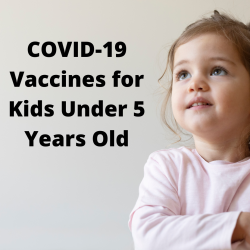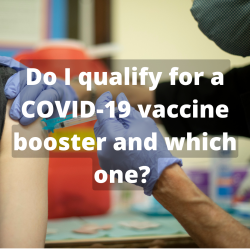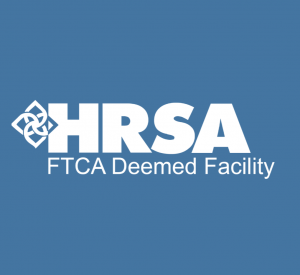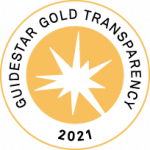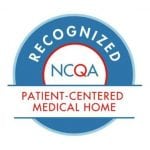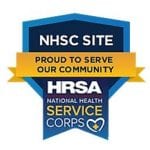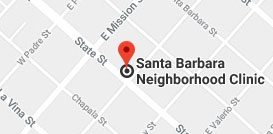Santa Barbara Neighborhood Clinics continues to serve our community with high quality affordable healthcare during the COVID-19 pandemic.
COVID-19 Home Test Kits Available at All of our Clinics at No Cost to Patients
SBNC Offers Free COVID Vaccines and Boosters!
Santa Barbara Neighborhood Clinics is offering FREE COVID Primary Vaccine Series AND the newest COVID BiValent Boosters for any person six months and older. Being vaccinated and boosted reduces the risk of hospitalization or death due to COVID by 90%.
COVID Vaccines are now available at all SBNC Clinics at no cost to you. If you have not received yours, call us today to schedule your appointment at 805-450-5965. Walk-ins are also welcome!
Click here to see SB County’s summary on COVID-19 (now updated every Tuesday and Friday).
It is recommended to receive a booster dose 5 months after you completed the two dose series with Pfizer-BioNTech or Moderna. You may get Johnson & Johnson’s Janssen COVID-19 booster as least 2 months after receiving your the first dose. For more information on receiving your booster, please visit CDC.Gov
Click here to view the County of Public Health’s vaccine schedule.
Who Needs an Additional COVID-19 Vaccine?
Currently, CDC is recommending that moderately to severely immunocompromised people receive an additional dose because they are more at risk of serious, prolonged illness.
This includes people who have:
- Been receiving active cancer treatment for tumors or cancers of the blood
- Received an organ transplant and are taking medication to suppress the immune system
- Received a stem cell transplant within the last 2 years or are taking medicine to suppress the immune system
- Moderate or severe primary immunodeficiency (such as DiGeorge Syndrome, Wiskott-Aldrich Syndrome)
- Advanced or untreated HIV infection
- Active treatment with high-dose corticosteroids or other drugs that may suppress your immune response
People should talk to their healthcare provider about their medical condition, and whether getting an additional dose appropriate for them.
Who qualifies for a medical exemption from being vaccinated against COVID-19?
The only definite medical contraindication to the COVID-19 is a documented, severe, anaphylactic allergic reaction to a first dose of COVID-19 vaccine.
SBNC clinicians will only write medical exemptions for the reason listed above.
Coronavirus disease (COVID-19) is an infectious disease caused by a newly discovered coronavirus.
Most people infected with the COVID-19 virus will experience mild to moderate respiratory illness and recover without requiring special treatment. Older people, and those with underlying medical problems like cardiovascular disease, diabetes, chronic respiratory disease, and cancer are more likely to develop serious illness.
The best way to prevent and slow down transmission is to be well informed about the COVID-19 virus, the disease it causes and how it spreads. Protect yourself and others from infection by washing your hands or using an alcohol based rub frequently and not touching your face.
The COVID-19 virus spreads primarily through droplets of saliva or discharge from the nose when an infected person coughs or sneezes, so it’s important that you also practice respiratory etiquette (for example, by coughing into a flexed elbow).
To prevent infection and to slow transmission of COVID-19, do the following:
- Wash your hands regularly with soap and water, or clean them with alcohol-based hand rub.
- Maintain at least 6 feet apart in distance between you and people coughing or sneezing.
- Avoid touching your face.
- Cover your mouth and nose when coughing or sneezing.
- Stay home if you feel unwell.
- Refrain from smoking and other activities that weaken the lungs.
- Practice physical distancing by avoiding unnecessary travel and staying away from large groups of people, especially outside your household and always wear a mask when doing so.
COVID-19 affects different people in different ways. Most infected people will develop mild to moderate illness and recover without hospitalization.
Most common symptoms:
Fever, dry cough, tiredness.
Less common symptoms:
Aches and pains, sore throat, diarrhea, conjunctivitis, headache, loss of taste or smell, a rash on skin, or discoloration of fingers or toes.
Serious symptoms:
Difficulty breathing or shortness of breath, chest pain or pressure, loss of speech or movement. (Seek immediate medical attention if you have serious symptoms) Always call before visiting your doctor or health facility.
People with mild symptoms who are otherwise healthy should manage their symptoms at home.
On average it takes 5–6 days from when someone is infected with the virus for symptoms to show, however it can take up to 14 days.
If you test positive for COVID-19, or get sick after you are exposed to someone with COVID-19, you can help stop the spread of COVID-19 to others, by following the guidance from our Public Health Department.
Please click here for guidance.
If you develop symptoms get a test and stay home.
Santa Barbara Neighborhood Clinics is now offering all three of the COVID-19 vaccines in its clinics. If you have not received yours, call us today to schedule your appointment at (844) 594-0343
What should I do if someone in my family gets really ill with COVID-19?
Immediately seek medical care if a member of your family gets seriously ill, for example develops difficulty breathing or feels pain or pressure in the chest. If possible, either you or an adult should contact your health care provider or COVID-19 hotline for instructions and find out where and how you could get care. If your family member is confirmed as having COVID-19, you must be prepared that you and other known contacts will need to isolate for 14 days and monitor symptoms, even if you feel healthy.
I am on medication for a chronic health condition. Should I change anything?
For people with chronic conditions such as such as asthma, diabetes, TB and HIV the most important thing is to continue your medication as prescribed, attend recommended check-ups and seek medical help if you have new symptoms. ALWAYS check with your healthcare provider on how to be protected from COVID-19 and continue your treatment as prescribed.
Should I get the vaccine if I am breastfeeding or going through treatment?
The two vaccines were not tested on pregnant or breastfeeding moms; however, there are no viruses in these products. They contain a copy of the “code” from which the virus makes the spike protein which it attaches to our cells. Once stimulated, our immune systems will make antibodies against that part of the virus rendering it incapable of attaching to our cell. Because of this mechanism, it is felt that theses vaccines are safe for pregnant and breast feeding mothers, as well as those hoping to become pregnant. The risk to the mom or breastfeeding baby from the actual COVID-19 infection is far greater than any risk from the vaccine that prevents it. There is no evidence or scientific basis for an effect on future fertility with the vaccine.
What ingredients are inside the vaccine?
Ingredients include the mRNA, Lipid carriers, salts, sugars and buffers, all common ingredients in foods and other medications. The vaccine ingredients are probably healthier for you than a soda pop!
Are there any side effects with diabetic or hypertension medications?
The studies included persons with diabetes and hypertension among other chronic illnesses and no known specific complications were identified and listed as contraindication to the vaccine.
If I get symptoms from the vaccine, do I need to isolate from my family household?
No, you will not have COVID-19. These are side effects, not the disease.
